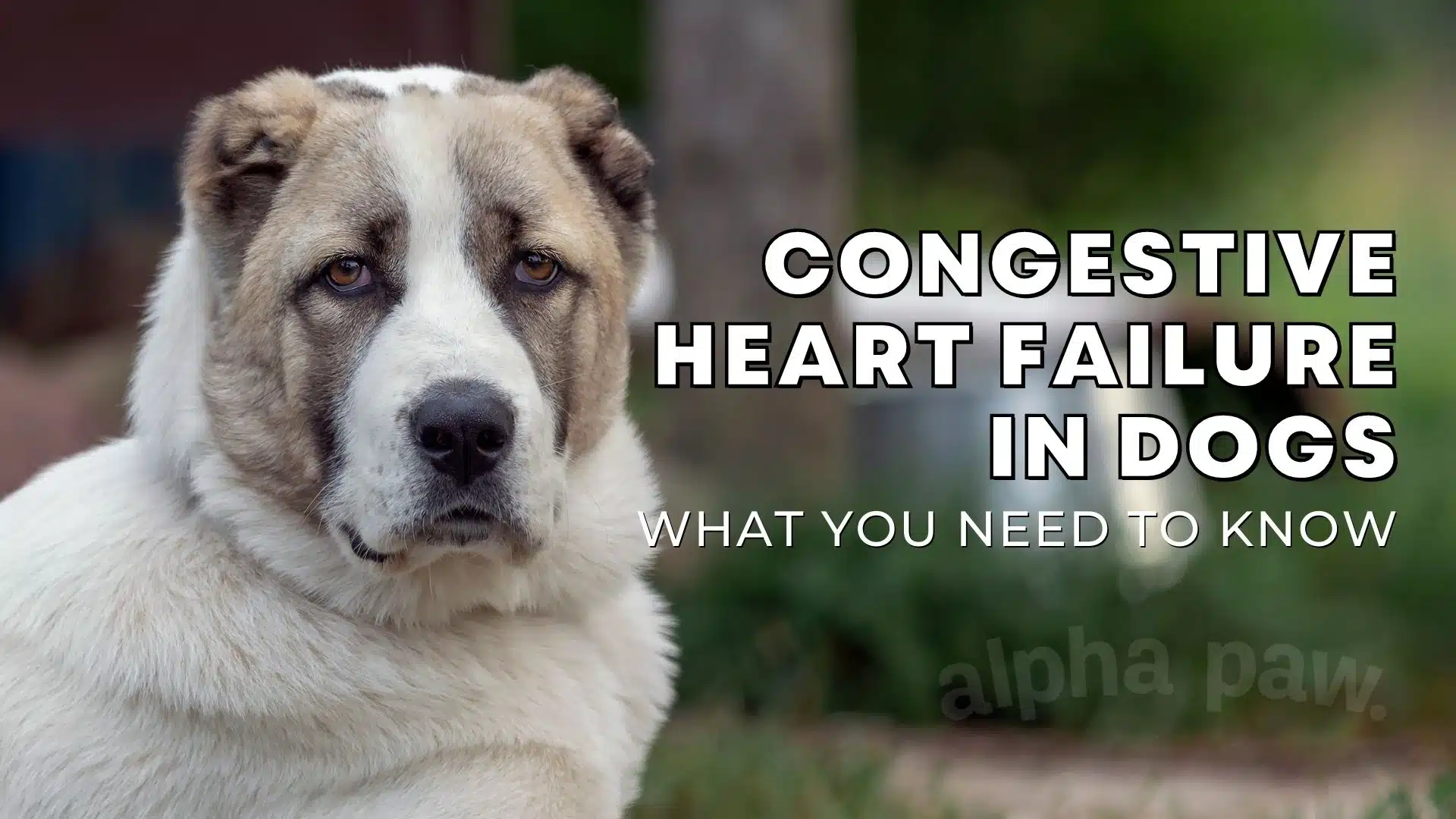


Congestive heart failure in dogs occurs when there is a severe underlying disease within the heart that causes excess fluid build-up within the body. Congestive heart failure is also known as CHF which is the medical abbreviation.
The two main forms of congestive heart failure in dogs are left-sided heart failure and right-sided heart failure. In left-sided heart failure, severe heart disease causes fluid build-up around the lungs. For right-sided heart failure, severe heart disease causes fluid build-up in the belly.
The most common signs of heart failure are coughing and difficulty breathing. If your dog is having a hard time getting on and off the furniture because of their heart failure, consider getting your pup a PawRamp which was designed to help your dog get safely up and down from the furniture. ASPCA Pet Health Insurance reported that the signs of congestive heart failure in dogs include:
In general, dogs do not have heart attacks the same way that people do. According to VCA specialty hospitals, heart attacks are pretty rare for dogs, but if a dog has heart disease, they may be at risk for sudden death due to other issues.
Elevate your dog’s overall well-being with our top picks for canine multivitamins. We’ve handpicked a range of premium supplements to support your furry friend’s health, ensuring they receive essential vitamins and minerals for a vibrant life.
In the early stages of congestive heart failure, you may notice coughing and difficulty breathing. In the last stages of congestive heart failure, your dog will become even sicker. The fluid in the lungs builds up so much that it will make it hard for your dog to breathe.
Your dog will not be able to breathe well even when asleep. The cough may sound very moist. Dogs in this stage of heart failure are at risk for sudden death.
If your dog has symptoms of congestive heart failure, it is important to call your veterinarian as soon as possible. During your appointment, your veterinarian will listen to your dog’s heart with their stethoscope to see if they detect a heart murmur or fluid in the lungs. At that point, they may recommend a few diagnostic tests.
This test will show if there is an enlarged heart or fluid in the lungs suggestive of heart failure. This is one of the main tests that a veterinarian will wish to perform to diagnose heart failure.
Your veterinarian may recommend a CBC, chemistry, and urinalysis to ensure that there are no other underlying diseases like liver or kidney disease. Many of the medications used to treat heart failure can affect the liver or kidneys so it is important to make sure these organs are healthy prior to starting heart failure medications.
An ECG is also known as an electrocardiogram. This test tests the electrical conductivity of the heart to ensure that your dog doesn’t have any dangerous arrhythmias.
Your veterinarian may also recommend an echocardiogram or an ultrasound of the heart. This test can evaluate if there are any structural issues within the heart and can give a closer look at the function of your dog’s heart.
The treatment for congestive heart failure in dogs includes medications to decrease fluid that has accumulated in your dog’s lungs. Right-sided heart failure may require manual removal fluid from the belly every few weeks by your veterinarian.
Some medications may be given to help improve the function of the heart. The most common medications used to treat heart failure include:
Once your dog has been diagnosed with congestive heart failure, its prognosis depends on a variety of factors including the severity of its disease. Your veterinarian will be able to give you a more accurate estimate of the estimated survival time for your dog.
The majority of dogs with heart failure will not live for more than 2 years. Dr. Mark Rishniw, a veterinary cardiologist, suggested that around half of dogs will die from congestive heart failure from mitral valve disease within 8 to 10 months. As this is only an average, some dogs may die within days, weeks, or months from diagnosis.
If promptly treated, your veterinarian may be able to temporarily decrease the symptoms that your pet is experiencing from heart failure. Unfortunately, because congestive heart failure in dogs is a degenerative condition, it tends to only get worse over time.
Most dogs will die within 1 to 2 years after diagnosis with heart failure. In severe cases, some dogs may not survive more than a few days or weeks after diagnosis with heart failure.
Most forms of heart failure in dogs cannot be prevented. Heart failure from heartworm disease can be prevented. An annual heartworm testing as well as administering monthly heartworm prevention to your dog will reduce the risk of heart failure (secondary to heartworm disease).
In addition, do not have your dog on a feed grain-free diet. There are possible correlations between dilated cardiomyopathy and feeding grain-free diets, so until we know more information, we recommend that you avoid feeding your dog grain-free diets.
If you enjoyed reading this article, head over to our Vet Corner where more articles can be found.

The medical, nutritional, or behavioral advice we provide is intended for informational and educational purposes only. Our editorial content is not a substitute for formal or personalized medical advice from a veterinary professional. Only board-certified veterinary specialists who have examined your pet should diagnose medical conditions, provide personalized treatment, or prescribe appropriate medication. For questions regarding your pet’s health, or if your pet is exhibiting signs of illness, injury, or distress, contact your veterinarian immediately. Never disregard professional medical advice or delay in seeking it because of something you have read on our site.